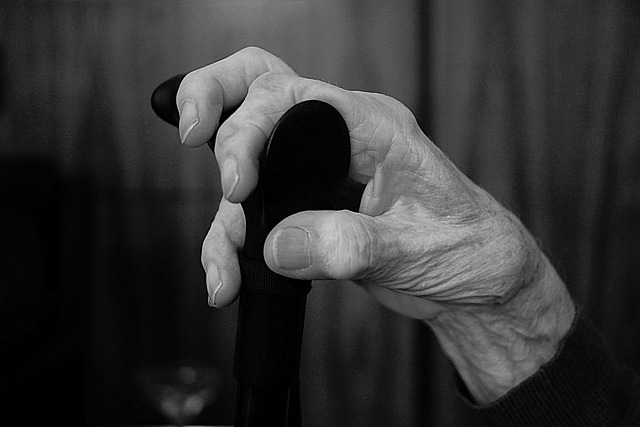Today, we’re discussing what happens as narcissists age and what that means for the significant others or family members who still have to deal with them. Let’s face it: none of us particularly enjoy aging, but most of us at least try to age gracefully. We take joy in watching our children step into the spotlight as adults, and we appreciate the chance to slow down and relax a little. However, for narcissists, this isn’t the case.
Narcissists have spent their lives living in a false reality of their own creation. They’ve grown accustomed to being the center of attention the star of the show, the person everyone caters to, the “best” at everything in their imaginary world. They rely on the people around them to reflect back an image that validates their delusional belief that they are perfect, special, unique, and superior to others.
But as they age, the reflection they receive from those around them begins to falter. It no longer aligns with the inflated, false image they’ve crafted of themselves. They’re no longer admired as they once were. The people in their lives have grown weary of their pathological lying, constant gaslighting, and manipulative behavior. This decline in admiration and validation reduces the potency of the narcissistic supply they desperately crave.
Without it, their true self buried deep beneath the facade begins to surface. This true self feels profoundly inferior, shameful, and vulnerable. For the narcissist, these feelings are unbearable, and as a result, their behavior becomes significantly worse.
In this topic, I’ll explain what that looks like.
One of the first changes you’ll notice as a narcissist ages is that they become even more manipulative. You might think, “How is that possible? The narcissist in my life is already insanely manipulative!” But trust me, it can and does get worse. With decades of experience manipulating others, they’ve become experts in the art of control. As they grow older, they also have more free time on their hands.
Narcissists bore easily and are constantly seeking ways to stave off boredom. In their later years, they often use this extra time to create chaos in the lives of their loved ones. You can expect increased levels of triangulation, projection, deflection, gaslighting, and stonewalling. Essentially, anything that makes life more difficult and stressful for those around them will intensify in both frequency and severity.
You may also want to read this:
How an Evil Narcissist Digs Out Your Deepest Fears?
If You Do This, Narcissist Will Lose Their Mind
Another hallmark of aging narcissists is a dramatic increase in delusional thinking and paranoia. Narcissists are naturally paranoid individuals, largely because they know they can’t be trusted. They’re fully aware of how they manipulate and exploit others, so they assume everyone else is just as deceitful and out to take advantage of them. As they age, this paranoia escalates to new heights.
They become suspicious of everything people, culture, businesses, political parties, you name it. They start to believe that everyone and everything is conspiring against them, trying to steal from them or exploit them in some way. This paranoia can become so extreme that it might even resemble schizophrenia, with some people mistakenly thinking the narcissist is hearing voices. In reality, it’s just their worsening pathology taking over their beliefs and perceptions. For those around them, this is utterly exhausting.
Bigotry is another trait that tends to intensify as narcissists age. Many narcissists develop bigoted views early in life, often as a way to reinforce their delusional belief that they are superior to others. They may become sexist, homophobic, racist, or adopt extreme political or religious beliefs. As they grow older, these prejudices become more pronounced. Whoever or whatever they use as a scapegoat to demean, humiliate, or demonize becomes a focal point of their identity. This allows them to maintain their fantasy of being special and superior, even as their grip on reality weakens.
As narcissists age, the abuse they inflict on others also escalates in both frequency and intensity. This is largely due to the diminishing levels of narcissistic supply they receive. As their supply dwindles, they experience more narcissistic injuries blows to their inflated ego. These injuries trigger their true self, which feels deeply vulnerable and inferior. To cope, they project these unbearable feelings onto others, often through abuse and humiliation.
They may fly into terrifying narcissistic rages, using these outbursts to neutralize the injury and restore their false sense of superiority. Once the rage subsides, they return to a calm, controlled demeanor, expecting everyone around them to move on as if nothing happened. For those on the receiving end, this cycle of abuse is both traumatic and confusing.
You may also want to read this:
5 Signs You are Having S£x with a Covert Narcissist
7 Tactics to Destroy a Narcissist in Court
Watching an aging narcissist can be a profoundly sad experience. Their desperation for narcissistic supply becomes increasingly obvious, and their delusional thinking grows more irrational and illogical. The mask they’ve worn for so long begins to slip, revealing a deeply damaged, desperate, and abusive individual. They struggle to find happiness or contentment, even as other older adults enjoy the love and support of their families.
Their manipulative tactics start to fail, and their lies become more desperate and pathetic. They panic as they lose control over the beliefs, perceptions, and lives of those around them. Despite their growing dependence on others something they despise they become needier than ever.
In the end, aging narcissists are unable to help themselves. They lack the capacity for self-reflection or accountability. Instead, they cling to their false narrative, casting themselves as the hero, victim, or martyr in every situation. They grow bitter and angry as they lose the ability to manipulate others as effectively as they once did. Their inevitable loss of control leaves them feeling increasingly victimized, even as they continue to inflict pain on those around them.
Read More: Why Narcissists Avoid Kissing Their Partners?
Sharing Is Caring!






